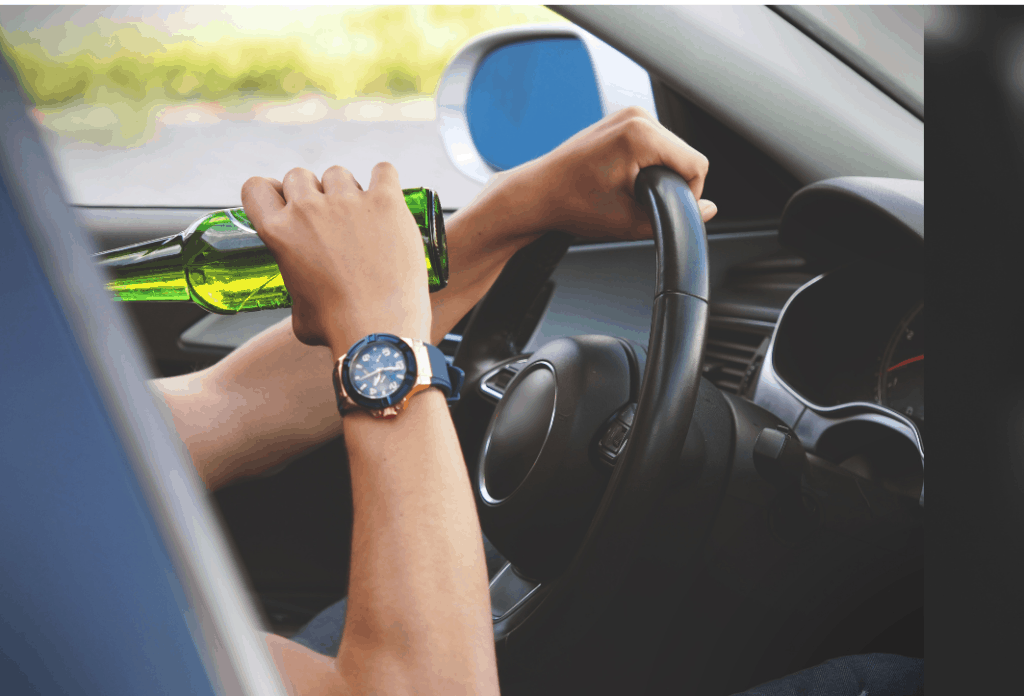If you’ve recently received a DUI, you might be anxious about your next steps. Maybe you’ve thought about attending alcohol rehab in North Carolina, or maybe you’re unsure about whether or not you have an alcohol addiction. There’s a lot to think about post-DUI, but we’re here to help you through it.
What is a DUI?
When you get a DUI it means that you were driving under the influence of drugs or alcohol. In all 50 states, it’s a crime to drive with a blood alcohol content (BAC) level of 0.08% or higher. If you’re under the legal drinking age, it’s illegal to drive with a BAC of 0.01% or higher in most states. Many states also increase fines when one’s BAC is particularly high, for example, around 0.2%. BAC tests are done through breathalyzers and then often confirmed with a urine or blood test after the arrest is made.
Think About What Happened Leading up to Your DUI
If you were arrested for driving under the influence, now is a good time to look at your drinking habits and what led up to your accident. Have you been consuming alcohol at high levels? Are you drinking frequently? Whether you’re addicted to alcohol or not, driving while intoxicated is a reason for pause.
Many states require an evaluation for alcohol use disorder, but it wouldn’t hurt to seek therapy in order to figure out the root of the problem that led to you driving drunk. Driving drunk often results in guilt in those who are caught (especially if anyone else is harmed) and talking to a therapist can help prevent you from continuing to drink as a coping mechanism.
Expect Financial Consequences
There are immediate financial consequences that come with a DUI. Here’s everything you might need to pay for after a DUI:
- Bond to be released from jail
- Fines or fees to get your car back
- Attorney fees if you choose to hire one to represent you in court
- Fines and fees as determined by the court
- Alcohol use disorder evaluation
- Safety courses
The fines and fees associated with getting a DUI are different for everyone and depend on a variety of factors, such as whether or not this was your first DUI and how high your blood alcohol content was when you were arrested. The higher your BAC and the more DUIs you’ve had, the more expensive it will be in total. In most states, both the fines and license suspension limits increase depending on the severity of the crime.
Attend Alcohol Education Courses
Whether they’re court-mandated or not, you may want to consider attending alcohol education courses after your DUI occurs. Not only will this show that you’re serious about learning and that you feel regretful about your actions, but also it can help you learn more about your motives, reasoning, and more.
These classes may help you realize that you have an alcohol or drug addiction. Many people don’t realize how alcohol is affecting their life until they get a DUI and begin to look inward. Use this time as a learning period. It’s easy to be angry and upset at yourself and the system, but use this as an opportunity to grow. Tell yourself it won’t happen again and take steps to ensure that it won’t. That starts with learning.
Get an Alcohol Use Disorder Evaluation
In many states, those who get DUIs are required to have an alcohol use disorder evaluation completed. Based on these evaluations, it’s determined whether or not further treatment is necessary. Alcohol use disorder (AUD) occurs when someone becomes addicted to alcohol to the point where they’re physically and psychologically dependent on the substance. People with AUD often feel like they can’t get through the day without drinking or that their withdrawal side effects are too severe to even attempt to quit.
By participating in an evaluation (even if you aren’t ordered to), you can speak with a doctor about your potential addiction. During your evaluation, they may also guide you on the next steps. They may refer you to a treatment center or encourage you to join a weekly support group like Alcoholics Anonymous.
Seek Treatment and Work on Recovery
After your evaluation, you may have found that you struggle with AUD or addiction. Being told by a medical professional that you struggle with addiction can be scary, and oftentimes people don’t know how to react. Treatment or rehab may be court-mandated, but even if it’s not, it’s still something that you should consider.
Seeking treatment after a DUI can be incredibly helpful. During treatment, you’ll have access to tons of resources, including therapists. During your therapy sessions, you’ll be able to learn healthy coping mechanisms and more. If your addiction stems from mental health disorders or experienced trauma, therapists can help with that too.
Relearn How to Drive Safely
When you finally have your vehicle back and your license is reinstated, it’s time to learn how to drive safely again. If you’re still struggling with addiction and you’re not yet in recovery, you might want to take a step back from driving while you relearn how to drive safely without consuming alcohol.
Most states will require people to take a safe driving course before their license can be reinstated. These courses not only reinforce safety and traffic laws but encourage people to make better choices, such as taking an Uber or Lyft or having a designated driver when drinking.
Find Alcohol Rehab in North Carolina
Of course, not everyone who is arrested for a DUI suffers from addiction, but it never hurts to learn more about yourself and why you made the choices that you did. If you do suffer from addiction, it’s time to seek treatment.
To learn more about alcohol rehab in North Carolina, call Asheville Recovery Center today. We’re here to answer any questions you may have and help you on your journey to recovery.








